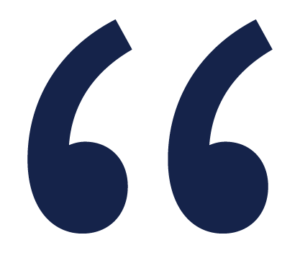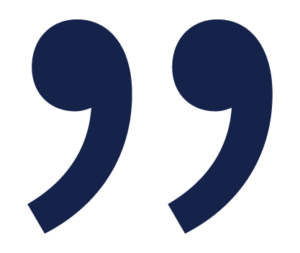Mellon Foundation Provides $984,000 Grant for Digital Humanities Fellowship
Mellon Foundation Provides $984,000 Grant for
Digital Humanities Fellowship
The Andrew W. Mellon Foundation recently renewed a five-year, $984,000 grant to support the University of Rochester’s Mellon Graduate Digital Humanities Fellowship. This innovative graduate program trains humanities students to integrate digital technologies into their research. The fellowship was launched in 2013 through an initial $1 million grant from Mellon.
“The Mellon Foundation’s support serves a vital purpose: to broaden and deepen humanities scholarship,” says University of Rochester President Sarah Mangelsdorf. “Participating students will be better prepared as future scholars and leaders in the digital humanities.”
Since 2013, 16 doctoral students have completed the two-year fellowships. The renewed grant will support 16 additional students as they embrace new and emerging technologies to advance research in their fields, discover new avenues of inquiry, and serve as apprentices and mentors to undergraduates, as well as faculty members.
Graduate students from the Departments of English, History, Philosophy, and the Graduate Program in Visual and Cultural Studies, which is an interdepartmental program, will be eligible for the fellowship. These students will work with technologies such as data visualization, new archival methods, textual markup and web construction, and digital editing.
“Offering this fellowship to mid-doctoral students is a hallmark of the program,” says Morris Eaves, director of the Andrew W. Mellon Graduate Program in the Digital Humanities and English professor. “It allows our students to acquire digital humanities skills and concepts, which they can then incorporate into their research at a critical time in their tenure as PhD candidates.”
“During the next five years, we’ll also put new emphasis on the role of the digital humanities in collaborations that extend beyond individual research programs to the realm of what some call the ‘public humanities’,” adds Eaves. “This will even better prepare PhDs for work lives that may not involve traditional tenure-track academic positions.”
“The scope and potential of this renewed grant is significant,” adds Gloria Culver, dean of the School of Arts & Sciences. “It will expand interdisciplinary potential through increased collaborations across the University.”
The Mellon Foundation’s support has been invaluable in the expansion of humanities programming at Rochester. Most recently, in 2017, the College was awarded $1 million for its Humanities for Life program, which reimagines the undergraduate experience to incorporate meaningful early engagement with the humanities.
In 2015, Mellon awarded the University a $100,000 grant to fund a pilot program to strengthen librarians’ competencies in digital scholarship. In 2014, it committed $500,000 to establish an endowment for the University’s continued partnership in the Central New York Humanities Corridor, an interdisciplinary collaboration among the University, Syracuse University, and Cornell University that is focused on enhancing scholarship in the humanities.
For more information on the Mellon Graduate Program in the Digital Humanities and to learn about various projects in the digital humanities at the University of Rochester, visit www.rochester.edu/college/mellon-fellowship.

 “My experience overall as a Mellon Fellow… was one of constant development and collaboration… The weekly meetings, readings, and discussions enabled the development of what digital humanities is currently and what it could be in the future. It afforded many opportunities to learn skills, create projects, and meet like-minded scholars, building professional relationships regionally and throughout North America. The fellowship was truly an exciting period that undoubtedly influenced my scholarly thinking and prospects, and I am grateful for the opportunities I was granted.”
“My experience overall as a Mellon Fellow… was one of constant development and collaboration… The weekly meetings, readings, and discussions enabled the development of what digital humanities is currently and what it could be in the future. It afforded many opportunities to learn skills, create projects, and meet like-minded scholars, building professional relationships regionally and throughout North America. The fellowship was truly an exciting period that undoubtedly influenced my scholarly thinking and prospects, and I am grateful for the opportunities I was granted.”
—Alicia Chester ’19 (MA), Graduate Program in Visual and Cultural Studies, Mellon Fellow 2016-2018, current PhD candidate

 “My time as a Mellon Fellow in the Digital Humanities was a time of broadening horizons. Coming from philosophy, a discipline which has been more reticent than others to embrace the digital humanities, I was already venturing into unknown territory. What I found stretched me, gave me a new set of skills, and ultimately made me a better scholar. Overall, I view my time as a Mellon Fellow in the Digital Humanities as a resounding success—one which left me with new avenues for fruitful research, new skills and tools, and a scholarly network of future collaborators.”
“My time as a Mellon Fellow in the Digital Humanities was a time of broadening horizons. Coming from philosophy, a discipline which has been more reticent than others to embrace the digital humanities, I was already venturing into unknown territory. What I found stretched me, gave me a new set of skills, and ultimately made me a better scholar. Overall, I view my time as a Mellon Fellow in the Digital Humanities as a resounding success—one which left me with new avenues for fruitful research, new skills and tools, and a scholarly network of future collaborators.”
—Nathanael Smith ’20 (PhD), Department of Philosophy, Mellon Fellow 2015-17, current PhD candidate

 “The Mellon fellowship taught me… what humanities scholarship can be in the 21st century. My learning experience wasn’t so much about tools and methods—though I did learn plenty in those areas. It was about developing new perspectives and new ways of thinking about the familiar subjects of literature. Equally important, I think, is the intellectual reciprocity I now maintain with other disciplines or with researchers who use different tech/methods than my own. I can see a bigger picture than I could before, and I now have a better sense of how disparate pieces of that picture might fit together in productive ways.”
“The Mellon fellowship taught me… what humanities scholarship can be in the 21st century. My learning experience wasn’t so much about tools and methods—though I did learn plenty in those areas. It was about developing new perspectives and new ways of thinking about the familiar subjects of literature. Equally important, I think, is the intellectual reciprocity I now maintain with other disciplines or with researchers who use different tech/methods than my own. I can see a bigger picture than I could before, and I now have a better sense of how disparate pieces of that picture might fit together in productive ways.”
—Eric Loy ’20 (PhD), Department of English, Mellon Fellow 2014-16, current project coordinator for the University of Rochester’s William Blake Archive